Holidaying in Thailand without indulging in a bit of shopping is nearly impossible. But the good news is—you can shop mindfully and make eco-friendly choices while supporting local artisans and communities. As sustainable tourism gains momentum, conscious shopping is becoming more accessible for locals, expats, and visitors alike. Here’s your practical guide to sustainable shopping in Thailand—where to go and how to make a positive impact with every purchase.
🌿 Where to Shop Sustainably in Thailand

1. Local Markets & Farmer’s Markets
- My Picks:
- Or Tor Kor Market (Bangkok) – Premium Produce in the Heart of the City – Located just across the road from the iconic Chatuchak Weekend Market and operated by the Marketing Organisation for Farmers, Or Tor Kor Market is known for its premium selection of fresh produce and prepared food, cleanliness, and support for local agriculture. A lot of famous restaurants actually source their fresh produce including fruits, organic vegetables, Thai herbs, fresh seafood here. It’s also a great place to buy ready to eat Thai street food and Thai desserts for takeaway. Or Tor Kor Market can be easily reached by MRT (Kamphaeng Phet Station).
- Jing Jai Market (Chiang Mai) – A Creative Hub for Sustainable Shopping – Jing Jai Market in Chiang Mai is a vibrant hub for organic agriculture, handmade crafts, and creative design. At its heart is an organic farmers’ market, showcasing pesticide-free produce sourced directly from local farmers in and around Chiang Mai. This low-carbon, green market serves as a model for sustainable community development and ethical consumption. The rustic market is also the largest handmade goods market in Chiang Mai, attracting art lovers and conscious shoppers alike. You’ll find a wide range of locally made items—from DIY crafts and artisanal home decor to unique lifestyle products crafted by Northern Thai artisans. The market’s creative community space celebrates Lanna architectural heritage, blending traditional design with modern flair. Trendy cafes and restaurants with distinct styles add to the charm, while the market also supports local and international graffiti artists, making it a cultural destination as much as a sustainable one.
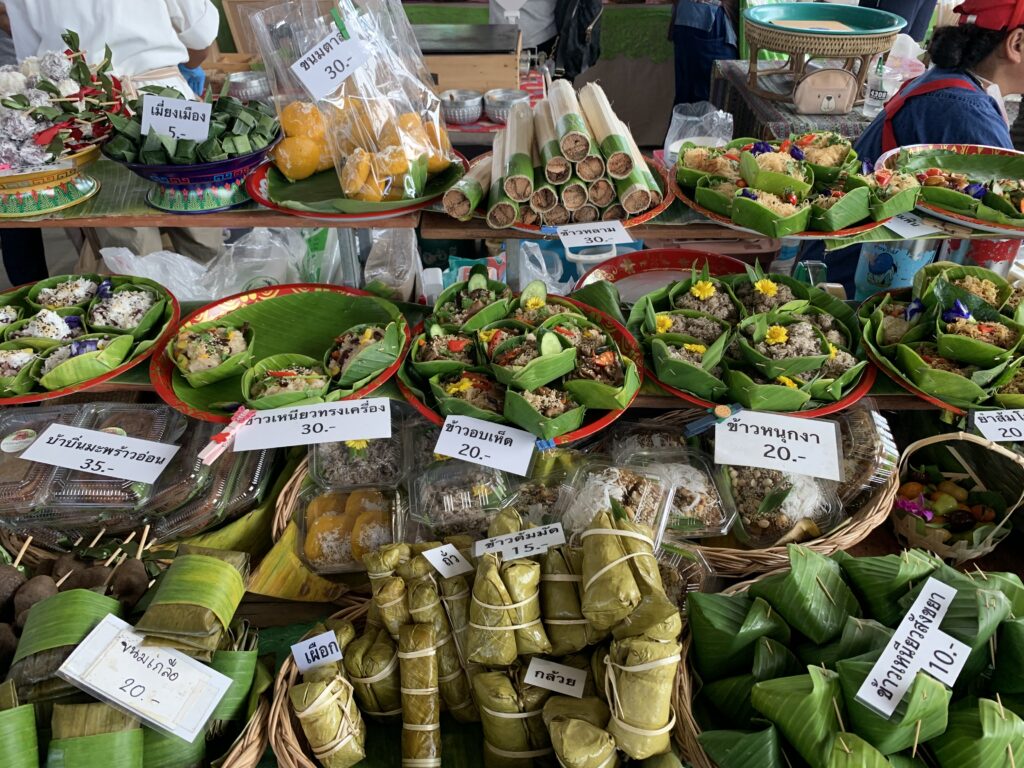
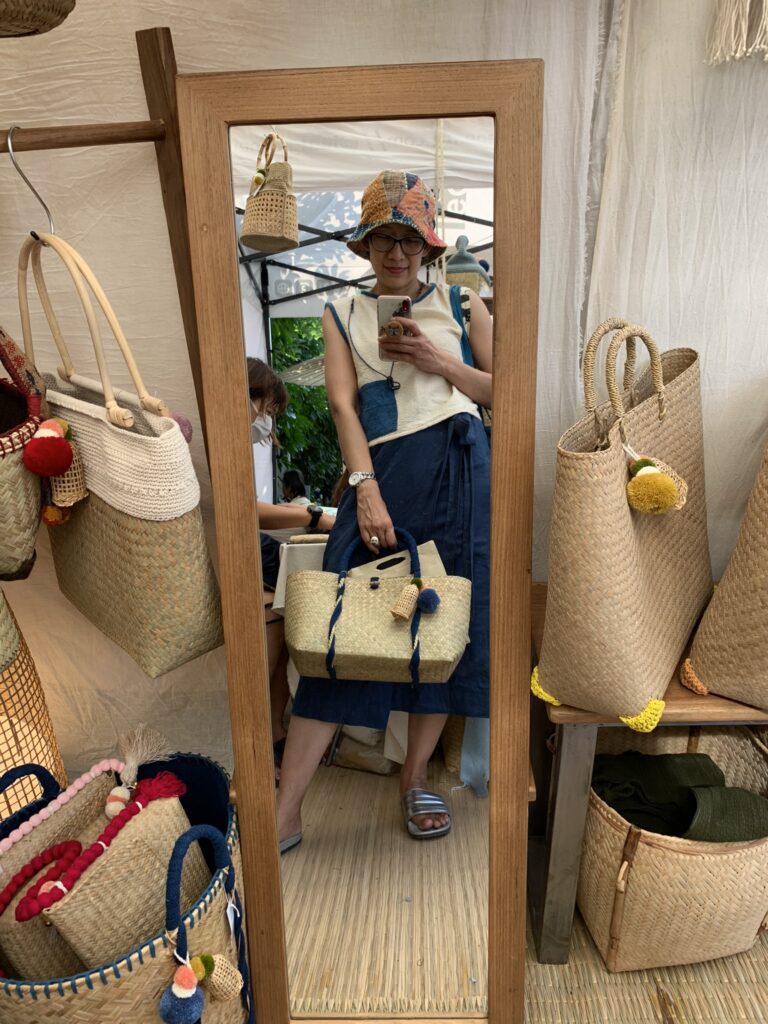
2. Sustainable and Eco Stores
- My Picks:
- Golden Place – Royal-Initiated Market for Quality and Sustainability – Golden Place is a unique retail chain established under the vision of His Majesty King Bhumibol Adulyadej (Rama IX) to offer Thai people access to high-quality, hygienically handled, and fairly priced goods. Operated under the Crown Property Bureau, Golden Place emphasises food safety, sustainable sourcing, and fair-trade practices. From organic vegetables and responsibly farmed meat to premium Thai products and household essentials, Golden Place is a trusted destination for conscious consumers who want to support royal development initiatives and make healthier choices.
- Royal Project Shops – Supporting Hill Tribes Through Sustainable Agriculture – The Royal Project Shops sell products from the Royal Project Foundation, a development initiative launched by King Bhumibol to help hill tribe communities in northern Thailand transition from opium cultivation to sustainable, environmentally friendly farming. The project supports education, fair wages, and long-term community development.
These shops offer a wide range of goods including:
Fresh fruits and vegetables
Locally grown coffee and tea
Healthy snacks
Natural skincare products
Handicrafts made by hill tribe artisans
Purchasing from Royal Project Shops is a meaningful way to support sustainable development and local empowerment in Thailand’s highland communities. - Siam Discovery Ecotopia – Bangkok’s Hub for Eco-Friendly Lifestyle – Located in the heart of Bangkok at Siam Discovery, Ecotopia is a modern lifestyle destination for anyone looking to live more sustainably. Created by a collective of co-creators from diverse fields, Ecotopia offers a curated selection of over 300 eco-conscious brands promoting wellness for yourself, your loved ones, and the planet.
This green community space combines shopping with learning and inspiration. Shoppers can explore a wide variety of eco-products—from reusable lifestyle goods and biodegradable items to clean beauty and ethical fashion. Ecotopia also hosts year-round workshops and events that encourage small, mindful changes with big collective impact.
3. Sustainable Thai Brands
- My Picks:
- Haarn – Established in Thailand, now oprating spas in Hong Kong, Japan and Vietnam, Harnn has been in the business for almost 25 years. Its evolution as Harnn Wellness & Hospitality emphasises how the Thai brand promotes sustainable well-being through its spa therapies and products. The brand is dedicated to nurturing both the well-being of both individuals and the planet.
- Patom Organic Living – Patom Organic Living offers a range of organic and natural skincare products made from ingredients sourced directly from local farmers supported by the Sookjai Foundation. The brand emphasises transparency and sustainability, ensuring that all products are chemical-free and packaged in eco-friendly materials. Patom’s commitment to organic farming and ethical practices sets a high standard in the beauty industry.
- Doi Tung – Doi Tung is the flagship brand of the Mae Fah Luang Foundation under Royal Patronage, founded by Her Royal Highness Princess Srinagarindra, the Mother of King Bhumibol. The foundation was launched in the 1980s to help the Akha, Lahu, and other hill tribe communities in Chiang Rai’s Golden Triangle region transition from growing opium to sustainable livelihoods.
Through a holistic development model—covering education, healthcare, reforestation, vocational training, and cultural preservation—Doi Tung became a symbol of social innovation in Thailand. Its highlight products include coffee, handwoven textiles & fashion wear, snacks, macadamia nuts and home decoration products. You can find Doi Tung products at Doi Tung Development Project & Visitor Centre in Chiang Rai, CentralWorld, Siam Paragon, Suvarnabhumi Airport in Bangkok and online at www.doitung.com. Supporting Doi Tung products not only creates income to the villagers but also help preserve traditional crafts like weaving and pottery. - OTOP Thailand – Celebrating Local Wisdom and Community Empowerment – OTOP (One Tambon One Product) is a national initiative that promotes unique, high-quality products made by local communities across Thailand. Each tambon (sub-district) selects one standout product to develop and market, showcasing the rich cultural heritage and craftsmanship of the region. OTOP products range from handwoven textiles, ceramics, and wooden crafts to herbal spa products, traditional snacks, and locally sourced foods. By purchasing OTOP items, you’re not only taking home authentic Thai creations, but also directly supporting rural economies, preserving traditional skills, and empowering local artisans, many of whom are women or members of minority communities. Shopping OTOP is a meaningful way to connect with Thailand’s diverse cultures while contributing to sustainable community development.
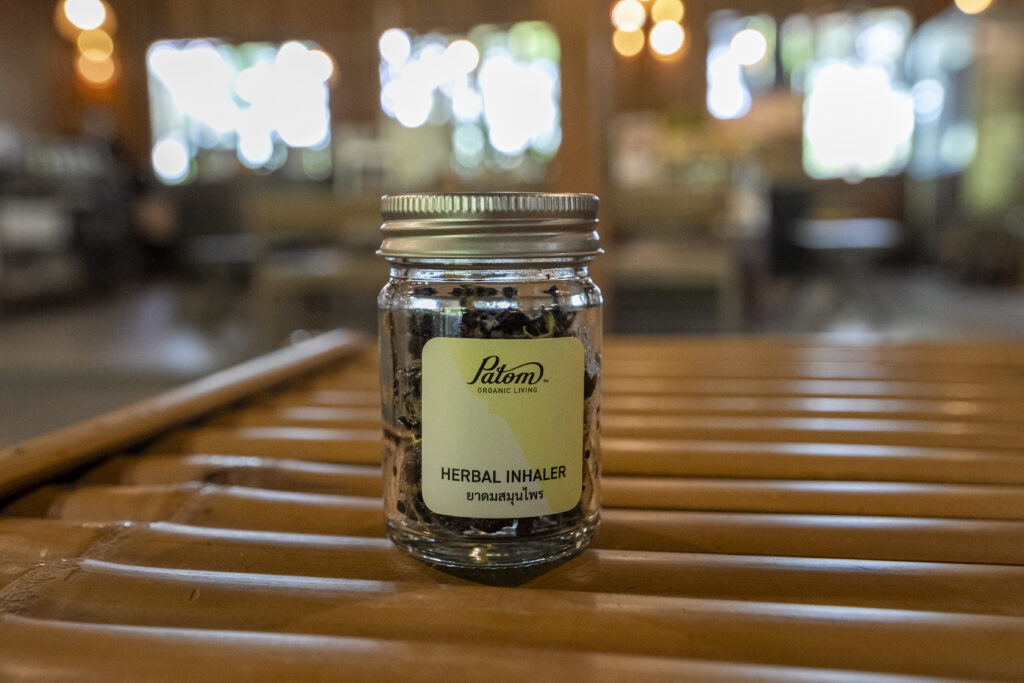
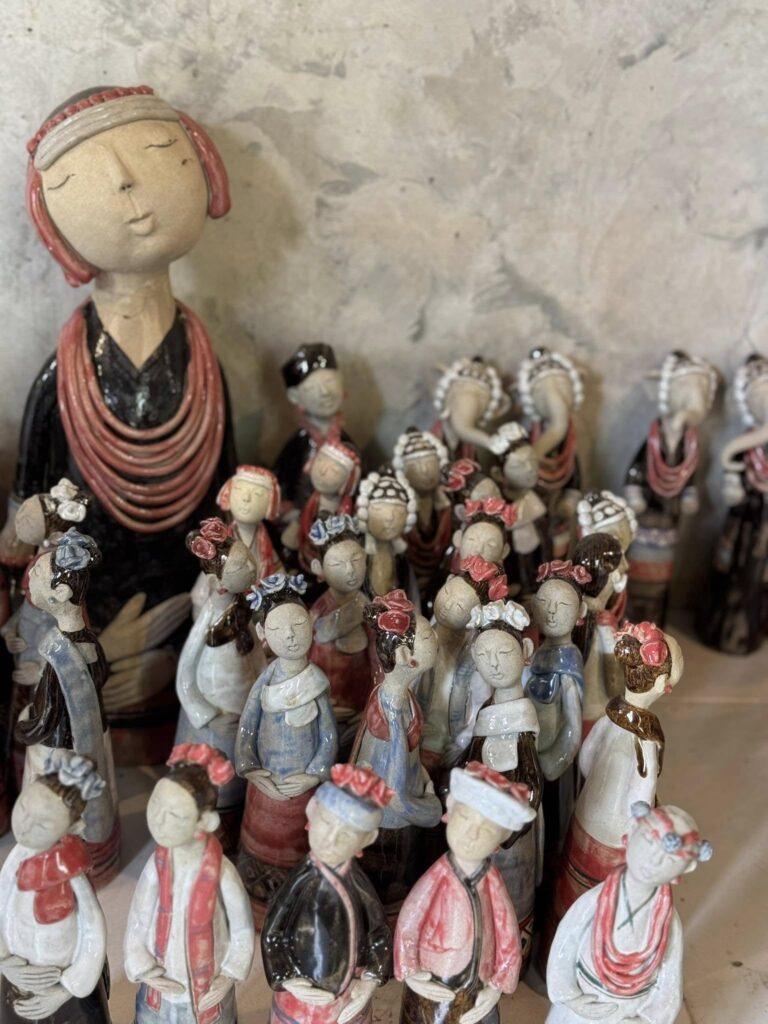
How to Make Eco-Friendly Shopping Choices – Universal Rules
1. Bring Your Own Bags & Containers
- Pack a tote, reusable cup/ water bottle, and food containers when heading out.
2. Choose Handmade & Locally Produced
- Handmade items from local artisans reduce industrial production impact and support local communities.
3. Avoid Single-Use Plastics
- Many cafés and food stalls are happy to serve in your containers. Look for places with compostable packaging.
4. Buy Less, Choose Well
- Opt for quality items with a story—such as handmade textiles, naturally dyed fabrics, or upcycled products.
5. Support Fair Trade and Social Enterprises
- Look for businesses that empower disadvantaged groups (e.g. Golden Place, Doi Tung, Royal Project).
6. Shop at Vintage or Secondhand Stores
- In cities like Bangkok and Chiang Mai, you’ll find trendy thrift shops and weekend vintage markets that sell pre-loved fashions and home decorations.
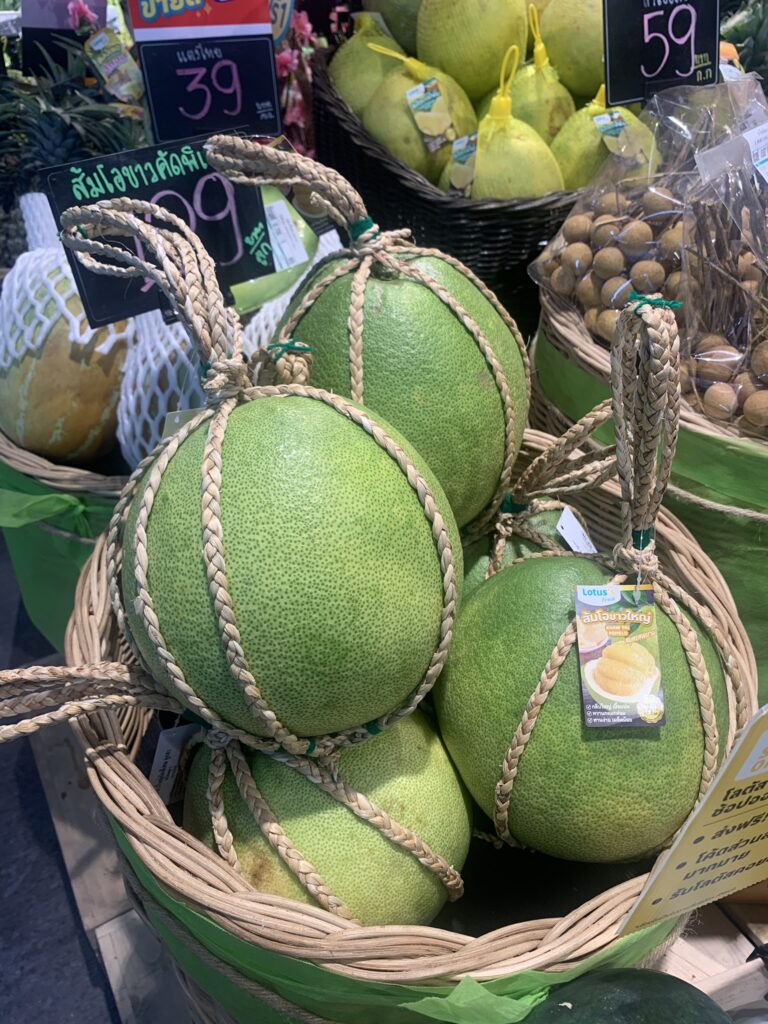
Conscious Shopping Tips for Travelers
- Skip souvenirs made from wildlife (e.g. ivory, shells, or endangered plants).
- Check certifications when buying organic or fair-trade items
- Ask questions: “Who made this?” or “Where does it come from?”—the answers can guide ethical decisions.
- Buy from community-based tourism shops or craft co-ops where the money goes directly to the maker.
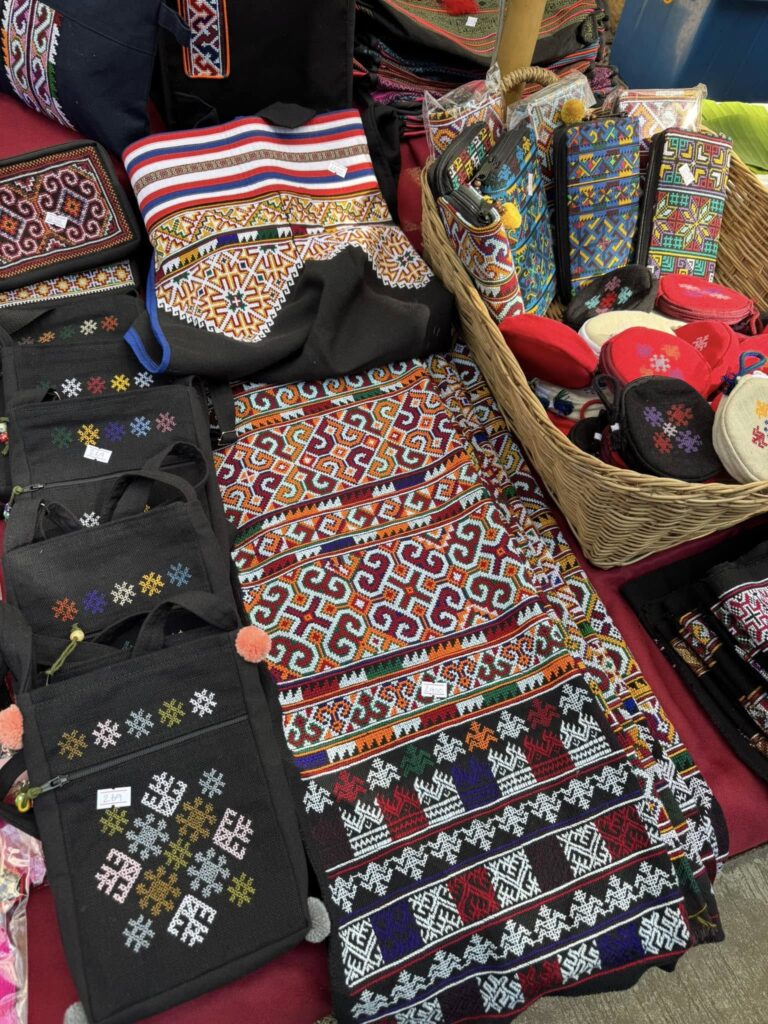
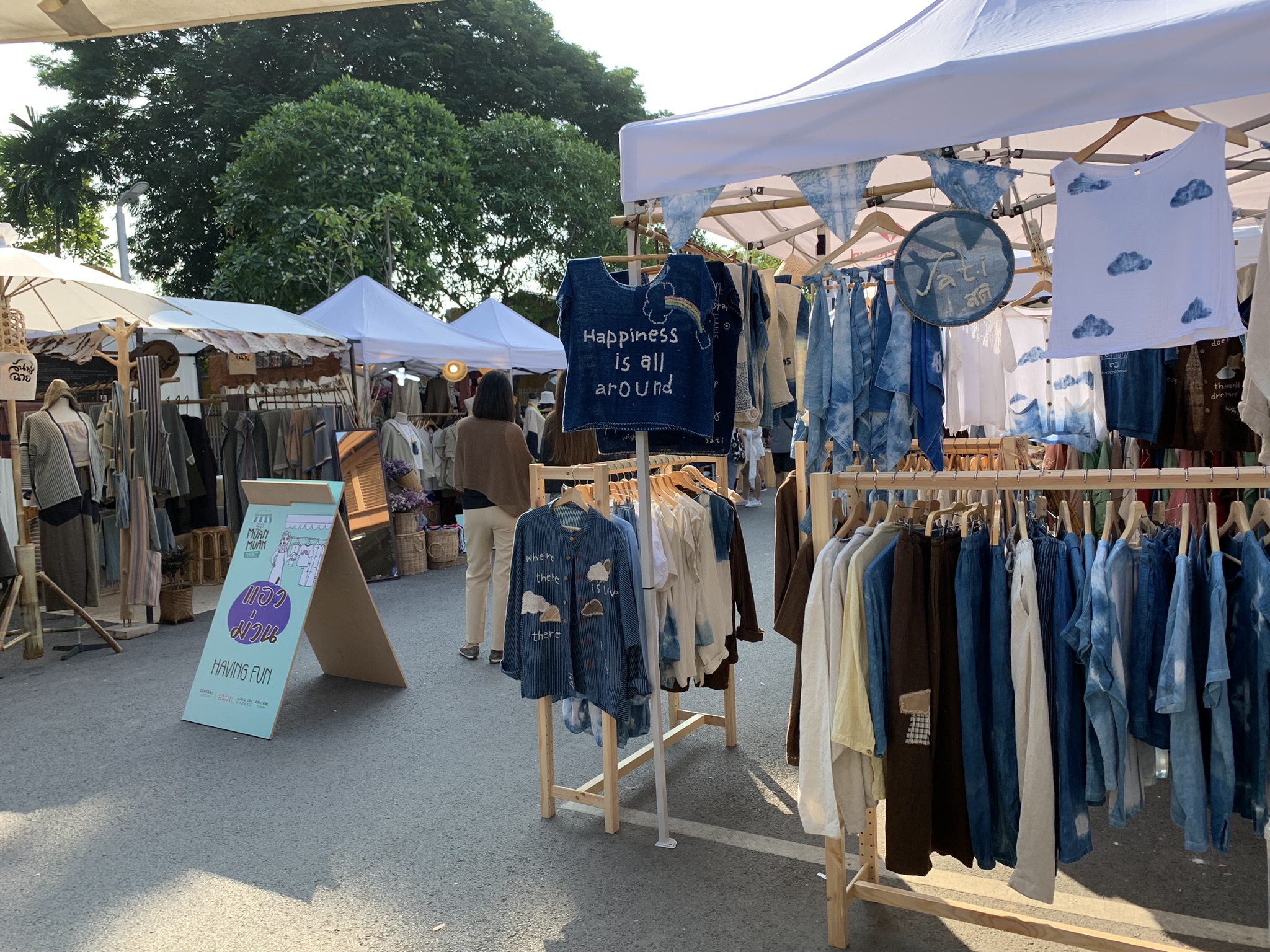
Leave a Reply